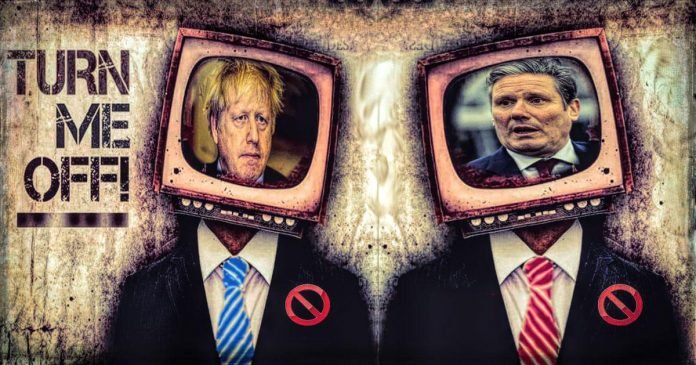The Rebellion That Never Died: How the Left is Reinventing Itself Beyond Labour”
“Revolutions don’t begin with a bang—they start with a whisper. And right now, across Britain, that whisper is growing louder.”
The political tremor that once threatened to be an earthquake has now subsided. From all four corners of the kingdom, the establishment breathes an audible sigh of relief. The quake has faded; the lion’s roar is silent. No longer does the mob chant of “Oh, Jeremy Corbyn” echo across the land to shake the worldview of the bourgeoisie.
Many are leaving the Labour Party. The numbers don’t lie. Since 2020, Labour’s membership has haemorrhaged hundreds of thousands. These weren’t fair-weather supporters—they were true believers, the kind who knocked on doors in the rain, who donated their last fiver, who genuinely thought this time might be different.
They realise that without Corbyn, Labour is just another brick in the wall. There will be no challenge to the rigged system, no block in the race to the bottom, no reversal of policy, and certainly no building of a just society. For thousands, Jeremy Corbyn was the only reason they joined. He offered hope, and the promise of change.
Now he has been usurped, exiled to the backbenches, made just another voice of quiet discontent. The Labour Party once again wears the colour blue, reflecting its position as the other Tory Party.
Tony Benn’s prophetic warning rings louder than ever:
“If the Labour Party could be bullied or persuaded to denounce its Marxists, the media — having tasted blood — would next demand it expel all its Socialists, and reunite the remaining Labour Party with the SDP to form a harmless alternative to the Conservatives… But if such a strategy were to succeed… it would profoundly endanger British society.”
They’re still not listening…
In Westminster, the elites and their loyal politicos carry on as if nothing has happened. They remain oblivious to the growing roar beyond the bubble. Not even social distancing could contain the new political fault lines opening up. Corbyn may have sounded the horn of resistance, but the people are now carrying the twin flames of anger and hope.
The establishment thinks the rebellion is over. But across Europe, we’re only just getting started.
The Shame of It: Labour Is Closed to the People

The Tories quickly recognised the disquiet. They saw their support bleeding to UKIP. Though they wanted to remain in the EU, they played pragmatism over principle. UKIP, a party with no MPs, had pushed Britain into a historic shift. The Tories adapted, co-opting Brexit with the slogan “Get Brexit Done” — three words that won an election.
Labour, on the other hand, chose to betray its base. Figures like Ian Lavery and Jon Trickett warned that pushing for a second referendum would destroy Labour in Leave-voting seats. But the centrists won. Under then-Brexit Secretary Keir Starmer, Labour adopted a disastrous policy that guaranteed defeat — and guaranteed Corbyn would be ousted.
The final betrayal came with the #LabourLeaks: evidence that party staff actively worked to sabotage the 2017 campaign. A betrayal not just of Corbyn, but of the 12.8 million who voted Labour. A betrayal of democracy.
Labour’s treatment of its base is indistinguishable from an abusive relationship. It offers empty promises, knowing many feel they have nowhere else to go.
But there is somewhere else to go.
The Battlefield Is Changing
Disillusioned members aren’t retreating — they’re regrouping. The Left is not shrinking. It is evolving, migrating into grassroots movements and new parties: Chris Williamson’s RESPECT, the Workers Party, the Socialist Party, the CPB, all seeing growth.
These aren’t pipe dreams. Across Europe, political disruption has yielded real power.
- Spain: Podemos rose from protest to parliament and government in less than a decade.
- Italy: The Five Star Movement, founded by a comedian and a blogger, won the largest share of the vote in 2018.
- France: Macron’s En Marche exploded onto the scene and swept the presidency and parliament in a single year. Like him or not, his path to power is a case study in modern insurgent politics.
All proved that movements can shake the status quo without ever winning power first.
Theresa May and her backpedalling over the EU and lacklustre tenure as prime minister very nearly brought down the conservative Party; however, again, the Labour Party came to the rescue with the biggest betrayal of all the #LabourLeaks. In 2017, Labour Party members and staffers actively working to lose a general election. A betrayal of the 12,877,918 who voted for the Party, more so a betrayal of democracy when members of HMO actively work to throw an election.
After throwing an election, the Labour Party do not deserve the support of the working class. Millions have been left deserted to continue living under harsh Tory austerity measures and life on zero-hour contracts, visiting food banks as their only source of subsidy, a life of in-work poverty.
We now know that the Labour Party is institutionally treacherous following the 2nd betrayal of the 2017 election and the 3rd betrayal of Starmer’s vote-losing second referendum policy. Just like in an abusive relationship, the Party think they can continue in their abuse, we will always support them, no matter how many times the promise of unity and reconciliation is given and broken. After all, we have no place to go, do we?.
So how do you leave when you have nowhere to go?
Nothing would please the mainstream Parties more than if the people were to revert back to a time of apathy, where they lose interest in politics again, a time when we barely managed to turn out and vote. The Labour Party are losing members fast.
However, these members are not leaving the battlefield; they are regrouping. The Left is not shrinking; it is going through a phase of disruption. Socialists are joining new grassroots movements and Parties such as Chris Williamson’s grassroots movement or George Galloway’s Workers Party, both growing expeditionary while the Labour Party shrinks. Others are turning to the Socialist Party, and the CPB is having a revival, as we see Marx being more relevant than ever.
The question is, can these movements make a difference, and the answer is a resounding yes!
POLITICAL DISRUPTION
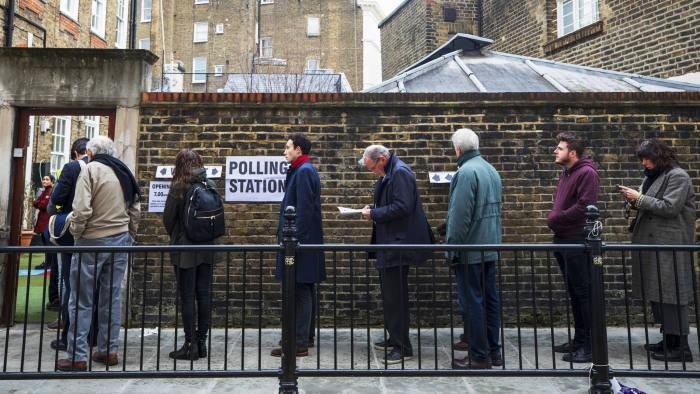
In recent years, Europe has seen the rise of ideologically diverse political forces that brand themselves as movements more than as parties.
Spain’s Left-wing party Podemos founded in January 2014 by political scientist Pablo Iglesias in the aftermath of the 15-M Movement protests against inequality and corruption. Podemos has established itself not only as one of Spain’s main political actors but in Nov of 2019, this fledgeling Party entered government.
To reduce Podemos to a political party alone would be wrong. After all, even before it was constituted as a party, the hardcore of its leaders from the Complutense University of Madrid hosted a televised debate program (La Tuerka) which soon became Spain’s most-watched politics program. As those who later founded Podemos declared back in 2010, “If the media doesn’t come to you, become the media yourself.” This was the instrument through which its main host, Pablo Iglesias Turrión, became known to the wider public.
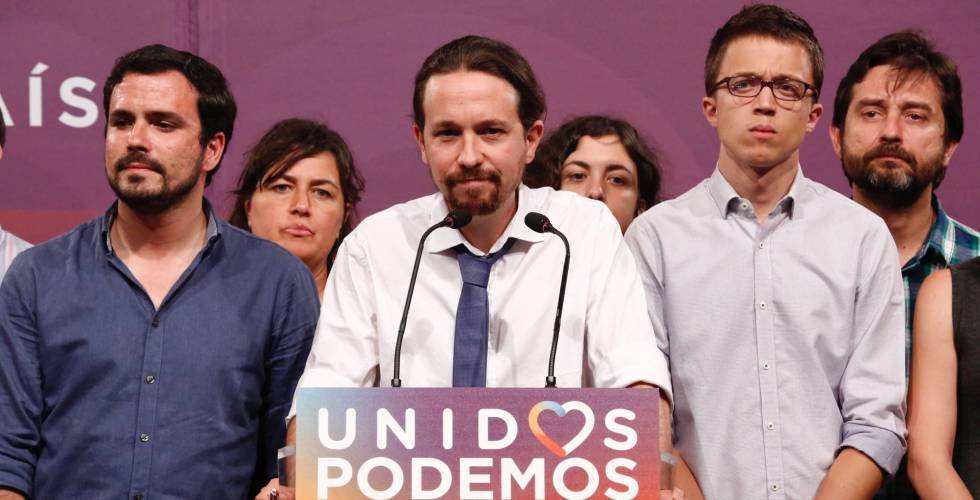
The charismatic Iglesias played a significant role in Podemos’s success in the May 2014 European elections. A poll published on the eve of the vote revealed that only 7 percent of the electorate had heard of the political party Podemos — whereas 50 percent knew of Iglesias. Podemos’s launch did not put an end to La Tuerka but, on the contrary, coincided with a shift from weekly to daily broadcasts, an increase in audience numbers, and the launch of a second program — Fort Apache — also produced by the production company (Con Mano Izquierda) belonging to Podemos’s leaders.
In Italy, the Five Star Movement finished first in the March 2018 parliamentary elections. Five Star founder, ‘Beppe’ Giuseppe Peiro Grillo, also known as ‘Beppe’, co-founded the movement in 2009. He studied as an accountant but did not finish university, instead falling into comedy, which in turn – along with his influential blog – helped him establish his political views and communicate them to a wide audience.

Grillo, now 68, is also an avid blogger and maintains a site in three different languages which reportedly ranks among the 10 most visited in the world and is considered one of the most influential.
As his political activism grew, he began to place emphasis on the role of the Internet as a way to herald pathways to direct democracy and a fairer society, making him one of the leading champions of digital utopianism in Italy.
In 2005, Grillo used money donated by readers of his blog to buy a full-page advertisement in an Italian newspaper La Repubblica, calling for the resignation of the then governor Antonio Fazio after the Antonveneta banking scandal. He was subsequently chosen as one of Time’s “European Heroes 2005” for targeting corruption and financial scandals.
Grillo started the Five Star Movement – or Movimento 5 Stelle (M5s) along with web strategist and editor of his blog, Gianroberto Casaleggio, who died in April 2016.
In 2009 Mr Grillo and Mr Casaleggio used the blog and social networking site Meetup.com to bring people together to campaign on local issues and then field candidates for elections and since then it has risen to become one of the most voted-for parties in Italy.
The movement has at its heart been a reaction against Italy’s self-serving and corrupt politics, with a founding aim has been to cut parliamentarians’ salaries (the highest in Europe) by 80 per cent and to ensure financial accounts of all state bodies are accessible to the public.
Its policies have always been an eclectic mix of the anti-establishment, environmentalist, anti-globalist and eurosceptic, and its supporters have always come from across the political spectrum.
The riskiest thing we can do is just maintain the status quo.
– Bob Iger
The most successful has been French President Emmanuel Macron’s En Marche, which swept to power only a year after its launch. But Macron’s creation, since renamed La République En Marche (LREM), type of party-movement hybrid; it was founded without the institutional support of a previous party or protest movement, or the appeal of a well-known public figure.
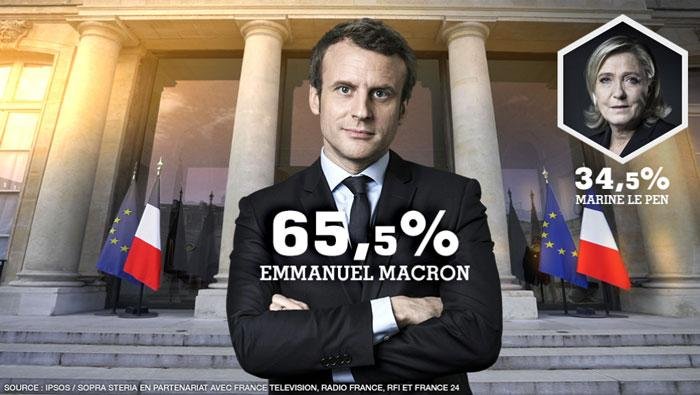
We have seen across the U.K. how small parties and movements without taking power can break the status quo, making events happen. Both UKIP and, more recently, the Brexit Party have made huge waves in British politics, forcing government and the opposition to change policy and agenda.
Activists and disruptors on the Left have been trapped in a holding pen called the Labour Party, supporting Jeremy Corbyn in a Forlorn hope against overwhelming odds.
It’s when Parties and politicians stop listening the entire house of cards tumbles down.
You don’t have to like Macron or his politics, personally, I don’t, however, you should try to understand his journey to power, it’s a lesson the Left can learn from.
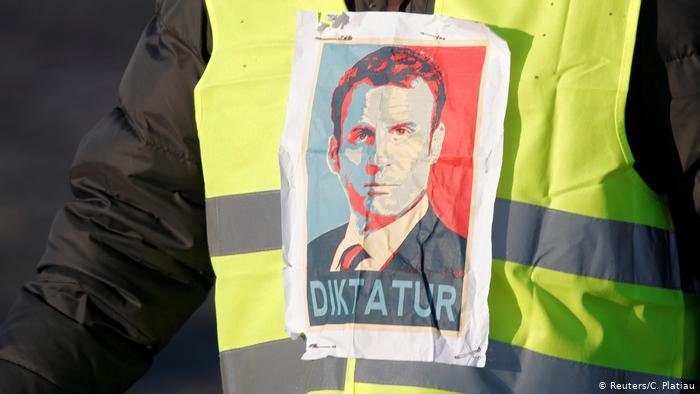
Macron’s politics did not matter he did something no other politician in Europe as ever done before.
Rather than launching his party in a top-down fashion by laying out a set of predetermined policy propositions, Macron decided that LREM should start with a large-scale conversation with citizens. This exercise labelled the Grande Marche, involved over 5,000 volunteers conducting in-depth interviews of around forty-five minutes with 25,000 people across the country about how they saw France; what problems they, their families, and their communities faced; and what kind of future they would like to see. All this information was subsequently filtered back to circles of policy experts within the movement.
No other leader in Europe has carried out a similar public exercise before founding a party or movement. Nearly all parties conduct opinion polling or hold focus groups to get a sense of what policy positions are popular with the public, but this is usually done on a smaller scale and behind closed doors. The LREM process of carrying out interviews and publishing the resulting analysis in a 176-page diagnosis of France’s problems was unprecedented. The language Macron used while campaigning and the issues on which he chose to focus truly resonated with many voters; these efforts were backed by a thorough understanding of why people were happy or unhappy and of what change they wanted to see. Arguably Macron was also successful because people felt they were given a genuine voice in the new political project. Much the same way that the Left in the UK believed Jeremy Corbyn was the voice of the masses.
Independence from the bureaucracy and internal politics of established party structures and from the strings attached to traditional funding streams meant that LREM could make quicker, more fluid campaign decisions. As Bruno Bonnell, LREM’s coordinator in the city of Lyon, said in a media interview, “We’re much more guerrilla style. We’re fluid, we’re about fast action and a swift decision-making process. We’re surprisingly organised for what is essentially a huge . . . [upswell] of emotion.” Rather than having his campaign run by local party offices, Macron’s presidential battle was fought by thousands of unpaid volunteers like Bonnell, who operated largely from their homes, cars, apartments, and communal spaces, such as bars, restaurants, and community centres.
Macron’s approach meant that his central claim of wanting to renew the political class could be taken seriously. Part of the appeal of LREM in the presidential and subsequent parliamentary elections was that its anti-establishment rhetoric was supported by action. Half of its candidates were female and half of them came from civil society rather than the political world. Three-quarters of the National Assembly now consists of members who had never before been elected, resulting in a younger, more diverse makeup than ever before. Critics, however, belittle this development as an elitist renewal, as most of those newly elected under the LREM banner are highly educated, with a greater proportion coming from business and managerial backgrounds.
LeFT– Liberate-educate-Fight-Transform
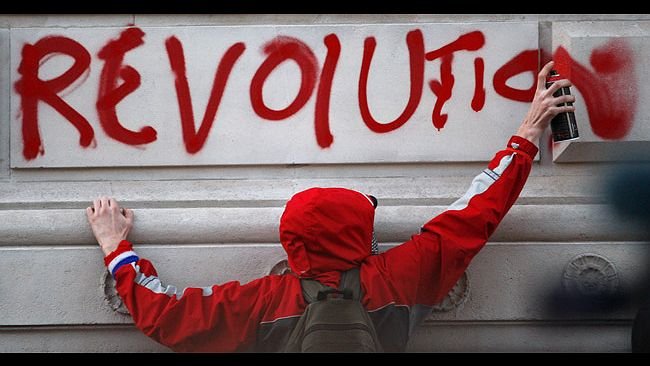
This picture shows that the mainstream parties are vulnerable, even while the system of FPTP is in place. You don’t have to win power to change power; all you need to do is challenge power. The UK Parliament is one of the oldest continuous representative assemblies in the world it has become defunct and detached. in the 21st century, politics is now the opium of the people. Now is the time for disruption and rebuilding.
The most important and longstanding debate on the left is between revolutionary and reformist politics. It goes at least as far back as the 19th-century debate in the German Social Democratic Party, when Rosa Luxemburg, in Reform or Revolution, demolished the arguments of Eduard Bernstein. Bernstein advocated that the party abandon its commitment to overthrowing capitalism and instead strive only for reforms to the system, with the vague hope that socialism might eventually come.
That argument has now extended to a question is the Labour Party the only hope of not only bringing in a socialist government but fighting the Right-wing per se?
The soundbite “Stay and organise” has been peddled by the Labour Party to keep members who are disillusioned with the right-wing direction Sir Keir Starmer is clearly taking, and the revelations that staffers and members of the Labour Party worked to lose an election. But just like the failed EU “Remain and reform” campaign, this campaign has no mechanism to organise and change the Labour Party.
Facts must be faced if the Labour Party machine could not move to the Left after five years under the most Left-wing Leader in a generation, under Sir Keir Starmer’s tenure, it will be an impossibility.
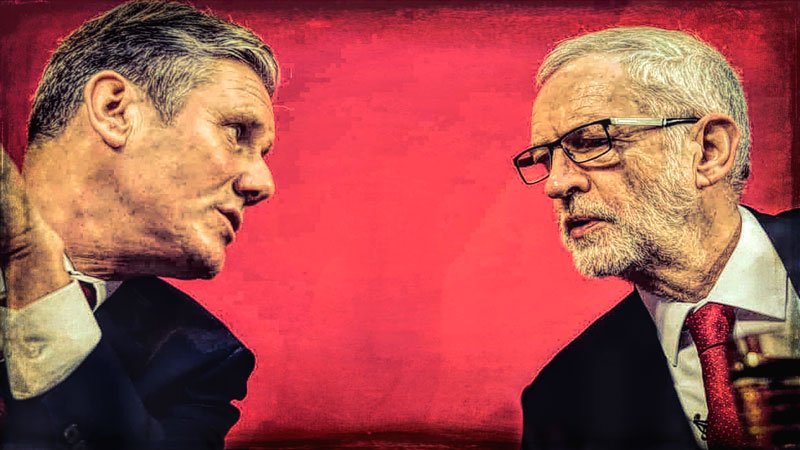
As Fred Hampton said:
“We’re gonna fight racism with solidarity. We say you don’t fight capitalism with black capitalism; you fight capitalism with socialism… The people have to have the power: it belongs to the people.”
Movements change politics. The mainstream parties are trying to maintain the illusion of control. But they are blind to a simple truth: the ground has already shifted.
For the disenfranchised, there is life after Labour. There are parties and movements that can speak for you, fight for you, and win for you. All you have to do is stop doing what you always did.
If you want to change power — challenge it.
Support Independent Journalism Today
Our unwavering dedication is to provide you with unbiased news, diverse perspectives, and insightful opinions. We're on a mission to ensure that those in positions of power are held accountable for their actions, but we can't do it alone. Labour Heartlands is primarily funded by me, Paul Knaggs, and by the generous contributions of readers like you. Your donations keep us going and help us uphold the principles of independent journalism. Join us in our quest for truth, transparency, and accountability – donate today and be a part of our mission!
Like everyone else, we're facing challenges, and we need your help to stay online and continue providing crucial journalism. Every contribution, no matter how small, goes a long way in helping us thrive. By becoming one of our donors, you become a vital part of our mission to uncover the truth and uphold the values of democracy.
While we maintain our independence from political affiliations, we stand united against corruption, injustice, and the erosion of free speech, truth, and democracy. We believe in the power of accurate information in a democracy, and we consider facts non-negotiable.
Your support, no matter the amount, can make a significant impact. Together, we can make a difference and continue our journey toward a more informed and just society.
Thank you for supporting Labour Heartlands
